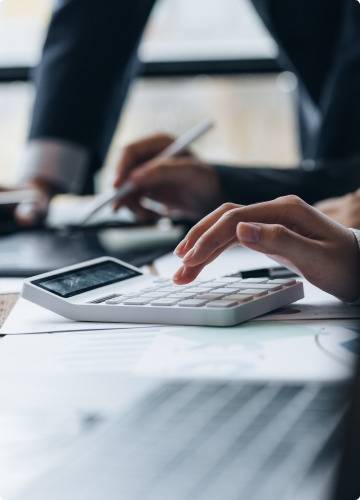Health and Fitness on Your Phone: Mobile Applications for Active People
Mobile health and fitness applications have become one of the most critical tools in helping people lead healthier lifestyles.
In today's fast-paced world, people increasingly use smartphones to improve their health and fitness. This is because smartphones have become an essential part of our daily lives. Mobile applications designed for active people not only make it easier to track progress, but also provide motivation to achieve better health.
With personalized workout plans and the ability to track eating habits, these apps offer endless ways to help users reach their health goals. In the digital age, technology is a critical part of our lives.
Developing mobile health and fitness applications is not only a business opportunity, but also a way to positively impact people's lives. A well-designed app can be the key to a healthier, more active, and aware lifestyle for its users.
The role of technology in lifestyles today
In today's world, technology has become an indispensable tool for leading a healthy and active lifestyle. Our mobile devices, which are always with us, are no longer just a means of communication but an essential aid to physical activity. There are numerous mobile applications available for athletes, both amateur and professional, that help in monitoring progress, tracking activities, and customizing workouts.
Modern technology allows us to use running apps that analyze our pace, distance, and calories burned. Additionally, there are yoga apps that guide us through different asanas step-by-step or meditation apps that help us relax and focus. For many people, technology has become a vital part of their daily workouts, enabling them to achieve better results and stay motivated.
Furthermore, mobile technology has made it possible to create a community around shared interests and passions. Apps like Strava and BodyNetics allow users to share their accomplishments, set new goals, and support each other in their quest for better health and fitness.
However, let’s not forget smartwatches and fitness bands that track our activity throughout the day- steps, heart rate, sleep quality. Technology has become a tool and a motivator for leading a healthier lifestyle. Today's mobile tools offer a wide range of options to help you achieve your athletic goals and take care of your health.
With technology,
an active lifestyle is just a few taps away.
What are health and fitness-related mobile applications?
Fitness apps:These apps offer customized workout plans and educational videos based on the user's individual needs. Activity trackers: These apps monitor and analyze daily physical activity, such as steps taken, calories burned, or distance covered. Calorie counter: These apps keep track of calories and macronutrients in your diet. Fitness guide apps: These apps offer instructional videos and workout plans for those who cannot attend live classes. Diet and nutrition tracking apps: These apps offer personalized meal plans and help users track their food intake. Meditation apps: These apps help you relax and focus. Yoga apps: These apps provide instructions and workout plans for at-home yoga practitioners. Home Workout Apps: These apps are tailored for people who prefer to work out at home.
Why should you invest in health and fitness apps?
Why should you invest in health and fitness apps?
- Exercises for home and gym
- Applications for yoga, pilates, and other forms of activity
Physical activity tracking (e.g. Pear)
- Pedometers and distance monitoring
- Heart rate and calories burned tracking
- Sleep and regeneration tracking
Nutrition and Dietetics (e.g. Foodlility / MyFitnessPal/SFD)
- Calorie calculators and diet plans
- Scanning of food products
- Applications supporting various diets, including plant-based
Motivation and Management (Calm)
- Fitness goals and progress tracking
- Notifications and reminders
- Social challenges and achievements
Benefits of using mobile apps for physical activity
Mobile applications for physical activity offer personalized training plans tailored to the user's individual needs and goals. These apps help you keep track of your training progress, which can motivate you to continue your efforts and achieve better results.
Besides, many apps come with social features that allow you to compete with friends or share achievements, further enhancing your motivation to exercise regularly. Additionally, these apps include video tutorials or animations that demonstrate how to do the exercises correctly, minimizing the risk of injury. With such apps, you can train anywhere, anytime, be it at home, in the park, or at the gym.
These mobile apps often integrate with other devices, such as smartwatches and fitness bands, to provide more accurate and comprehensive tracking of your physical activity. Some examples of popular and highly rated apps include those for training, activity tracking, diet, and motivation.
If yo are interested in exploring what fit applications we can prepare for you,
make an appointment for a free consultation
What are the challenges and risks?
Mobile health and fitness applications have become an essential part of many people's routines, providing tools to monitor physical activity, diet or sleep habits. However, as with any tool, there are challenges and potential risks associated with them. First, not all apps are created by health professionals, which can lead to incorrect advice and recommendations.
Incorrect information can not only hinder the user's progress but can also cause health problems or injuries. Moreover, many apps collect sensitive data about the user's health and habits, which raises privacy concerns. If this data is not protected properly, it can be a target for hackers.
Data privacy – Many applications ask for access to various data, not always directly related to their functionality. It is important to know what data the app accesses and how it will be used. Therefore, apps should have clear and understandable privacy policies. Encryption – Apps should use advanced encryption methods to protect user data from unauthorized access, ensuring that even if the data is intercepted, it will not be accessible by third parties. Updates - Regular app updates are critical to keeping data safe. Application developers often release updates that fix known security vulnerabilities, so it is crucial to use the latest version. Data backup – Regular data backups allow users to recover data in the event of an attack on the app or its failure.
Conclusions
Conclusions



















